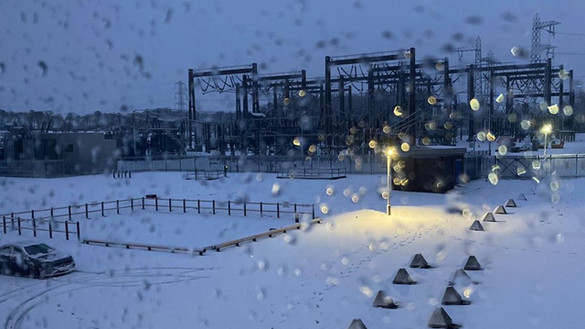
ESO: Pandemic planning keeps the lights on
National Grid ESO keeps the lights on for Great Britain day in, day out, with a reliability rate of over 99.999%. One of the reasons that Britain’s electricity system is so dependable is because of people like Cathy Fraser, whose day job is to make sure the ESO is prepared for a range of extraordinary scenarios. Here, she explains how all that planning and training has kicked in to keep Britain’s lights on during the coronavirus crisis.

My team is responsible for emergency planning for the Electricity System Operator (ESO). We prepare strategies to cope with everything from a full blackout across the country, through to working out contingency measures to ensure the smooth running of our control centre.
Prepared for a pandemic
On a normal day, we’re working on plans that kick in if things aren’t as we expected and the coronavirus outbreak is the kind of event we’ve been preparing for. We’ve done a lot of training so, when we need to respond to an incident, people know exactly what they have to do.
When we first heard about the virus in January, knowing we had policies in place was reassuring. We update our pandemic plans annually, to identify what’s critical to keep the lights on for Britain. It’s great to see the work we have done in ‘peacetime’ has set us up well; allowing us to quickly communicate with all the right people and ensuring that we have the tools and facilities in place to keep the electricity flowing efficiently and reliably, while keeping everyone safe.
Putting plans into action
In the case of COVID-19, my team has switched over to running our incident control. This special team makes sure that we have a joined-up response to coronavirus, so that everyone in our control rooms, critical support staff and our shift engineers are kept safe while they perform their key roles.
It’s meant making some changes to the way we normally work. We have two control rooms where our engineers work to balance electricity supply and demand and normally staff would work in both of them, now they are strictly segregated. To reduce the risk of the virus spreading, we have separated all our shift staff who keep our control rooms running 24/7, so they don’t come into contact with one another. Even our cleaners don’t move between the control rooms anymore. Support staff are now working remotely, accessing all our systems and delivering their critical work from home.
Learning from the coronavirus crisis
Things are changing on a day-to-day basis and we are constantly making enhancements to the way we work. We’re capturing everything we’re learning along the way, so that our future plans can reflect all the experience we are gaining now.
On a personal level, I’m proud of the way that across the ESO and National Grid, even though we’re all dealing with tough challenges, there’s a real sense of ‘we can do this’. We’re all talking more than ever before and at the end of every call someone always reminds us to stay safe.


